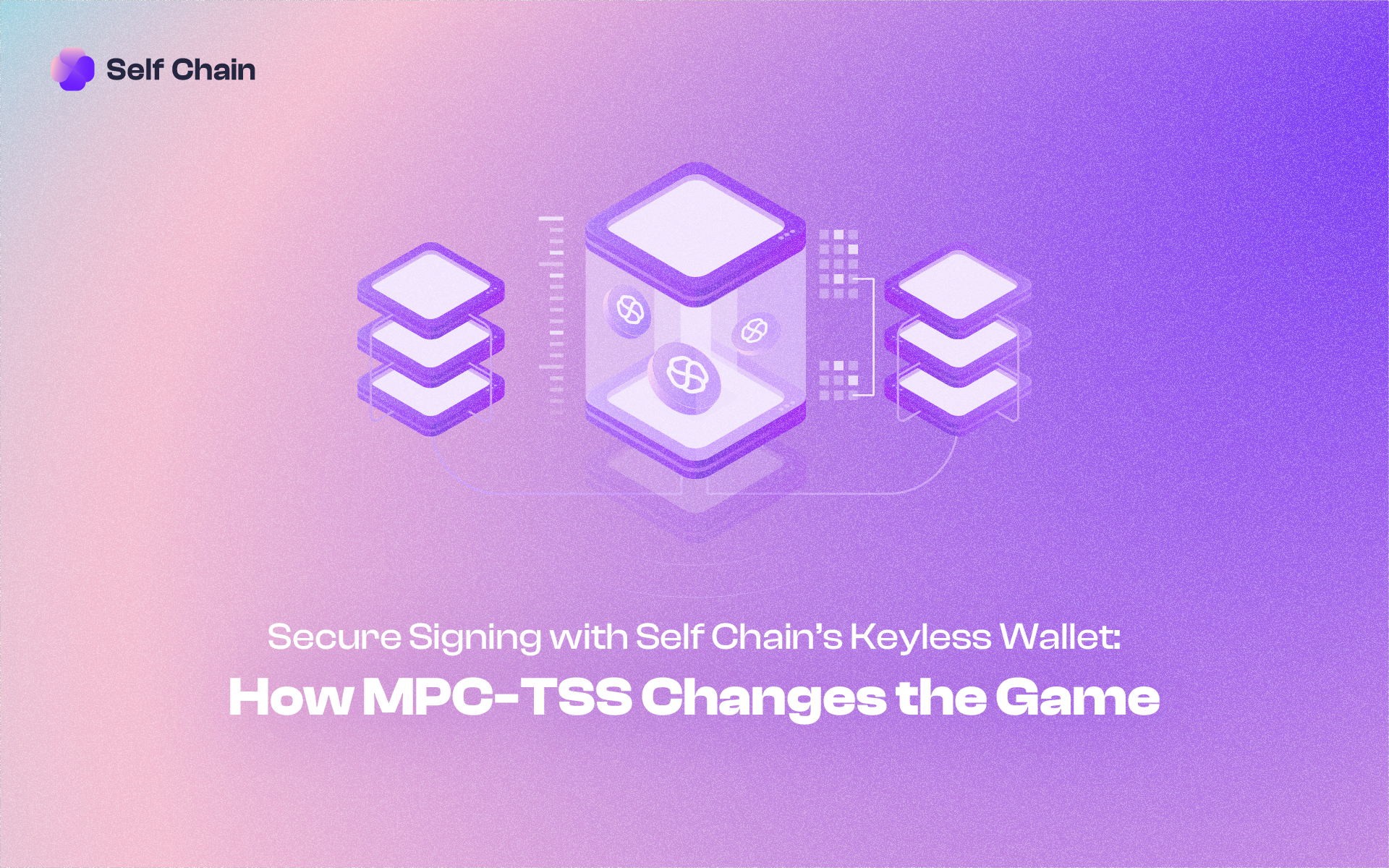Secure Signing with Self Chain’s Keyless Wallet: How MPC-TSS Changes the Game

When dealing with blockchain transactions, secure signing is paramount. Traditional wallets store private keys in one location, creating potential security risks. Self Chain’s Keyless Wallet employs MPC-TSS to revolutionize how transactions are signed, ensuring security at every step without the risk of a single point of compromise.
The Problem with Traditional Private Keys
In most blockchain systems, private keys control access to assets. If these keys are compromised, lost, or stolen, users could lose access to their funds permanently. In traditional wallets, the private key is stored in one place and used to sign every transaction. This centralized approach is risky and makes the wallet vulnerable to attacks.
How Self Chain’s MPC-TSS-Based Secure Signing Works
Self Chain introduces a novel solution to this problem. MPC-TSS divides the private key into 3 encrypted shares, stored across different parties.
- Personal Share: Stored securely on the user’s device.
- Remote Share: Encrypted on Self Chain.
- Recovery Share: Safely kept in the user’s cloud, utilizing advanced encryption.
Each party is unaware of the others’ shares, ensuring that no single party can access the full key. Whenever a user wants to sign a transaction, MPC-TSS coordinates the signing process across all parties, using each share to generate a valid digital signature without ever reconstructing the key.
In contrast to traditional signing methods, MPC-TSS guarantees that the private key is never formed in a single place at any time. This ensures that at no point during the signing process is the private key vulnerable to theft or exposure.
Why MPC-TSS Is Superior:
- No Centralization of Private Keys: With MPC-TSS, private keys are broken into multiple encrypted shares, ensuring no single point of failure.
- Distributed Signing: Each party contributes to the signing process without accessing the full key.
- Secure Lifecycle: Cryptographic operations throughout the entire key lifecycle are distributed and secure.
By using MPC-TSS, Self Chain’s Keyless Wallet ensures that every transaction is signed securely, providing users with peace of mind. The risk of compromised keys is drastically reduced, making it one of the most secure signing mechanisms in the blockchain industry today.
About Self Chain
Self Chain is the first Modular Intent-Centric Access Layer1 blockchain and keyless wallet infrastructure service using MPC-TSS/AA for multi-chain Web3 access. The innovative system simplifies the user experience with its intent-focused approach, using LLM to interpret user intent and discover the most efficient paths.
Self Chain ensures that onboarding and recovery are effortless with keyless wallets that grant users complete self-custody over their assets. In addition, it provides automated rewards to dApps when they efficiently resolve user intent, further enhancing the user experience. Moreover, Self Chain incorporates Account Abstraction with MPC-TSS to provide secure signing and reduce transaction fees. It's a platform that redefines blockchain interaction, making it more secure and user-friendly for everyone.
In a world where blockchain technology is becoming increasingly essential, the user experience remains a critical factor in its adoption. Intents and Keyless Wallets are set to transform the landscape, making blockchain interactions more accessible, efficient, and secure. As we move forward, the blockchain industry has the opportunity to provide users with a seamless and enjoyable experience, unlocking the full potential of this groundbreaking technology.
